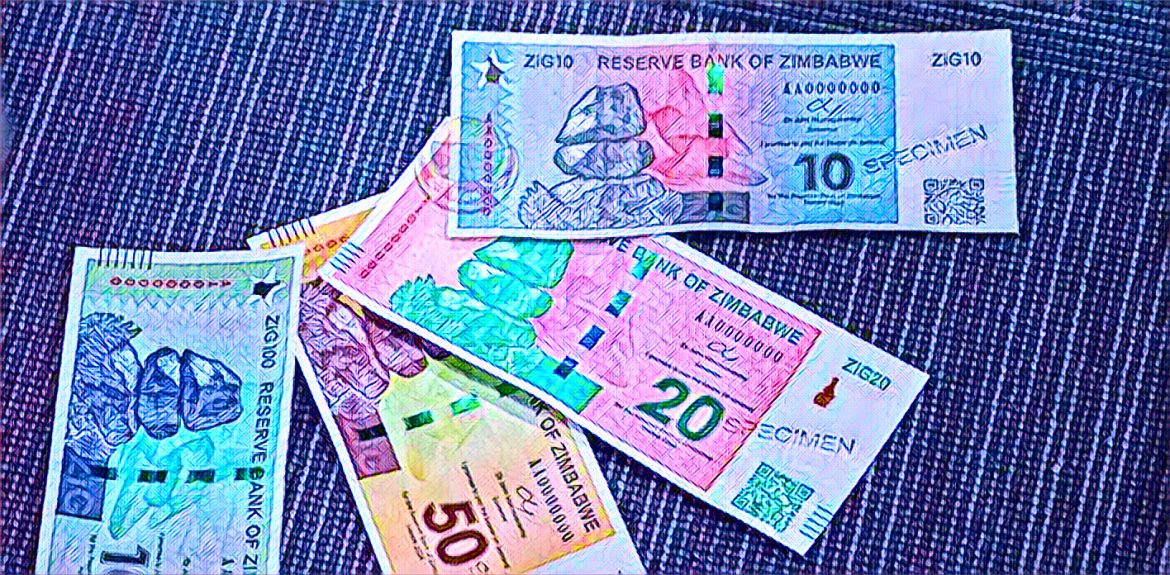KEY POINTS
- Zimbabwe’s ZiG currency devalued by 43%, leading to widespread rejection.
- Businesses have stopped accepting ZiG, opting for U.S. dollars instead.
- Officials face criticism as confidence in the gold-backed claim collapses.
Supermarkets, vendors, commuter omnibus operators, and tuckshops have stopped accepting payments in the local ZiG currency after Reserve Bank of Zimbabwe (RBZ) Governor John Mushayavanhu’s surprise 43% devaluation of the currency last week.
Prices are now pegged exclusively in U.S. dollars as Zimbabweans, wary of the unstable currency, fear suffering significant losses by holding onto the less-than-year-old ZiG.
“We do not know the rate to use, so it has become difficult for us to continue using the ZiG. What if we accept it and it gets devalued further while in my possession?” said a tuckshop operator in Dzivarasekwa Extension, Harare, where shops from as far as KwaRasta have agreed to trade only in U.S. dollars.
Commuter fares and trade now pegged to the U.S. dollar
Some commuter routes that were previously charged ZiG10 are now priced at $1, as operators worry about being left with devalued coins introduced in April.
The ZiG currency cannot be used to buy fuel, pay duty, or pay rent, as these have always been pegged in U.S. dollars.
Introduced in April at an exchange rate of $1 and promoted as the solution to Zimbabwe’s ongoing economic crisis, the currency has since faced severe devaluation due to the black market. The RBZ’s official rate was $1, while the black market offered ZiG24.
The reasons for the devaluation have not been adequately explained, especially since the public had been led to believe the currency was backed by gold reserves at the RBZ.
According to a report by New Zimbabwe, Mushayavanhu defended his decision, stating it would be beneficial in the long run, echoing the justifications given by his predecessors regarding other failed Zimbabwean currencies.
RBZ faces criticism over currency collapse
“The resurgence in exchange rate pressures since mid-August has necessitated a firm response,” Mushayavanhu told the state-controlled Sunday Mail. “Despite stable conditions earlier in the year, recent market dynamics have driven inflation higher, with August recording a 1.4% inflation rate, up from an average of -0.82% between April and July. The widening premium in the parallel market is a clear signal that we need to restore confidence and keep inflation expectations anchored. These actions will help cool down demand-side inflationary forces and stabilize the broader macroeconomic environment.”
Bulawayo Mayor David Coltart lamented the currency’s rapid decline and questioned Mushayavanhu’s claims that the currency was gold-backed.
Coltart questioned whether there had ever been a more rapid and abrupt currency collapse than the ZiG.
“Has there ever been a more brazen misrepresentation regarding the backing of a currency—i.e., that it was backed by gold or a more grossly inappropriate name for a currency—’ Zimbabwe Gold’—ZiG?” he said.


